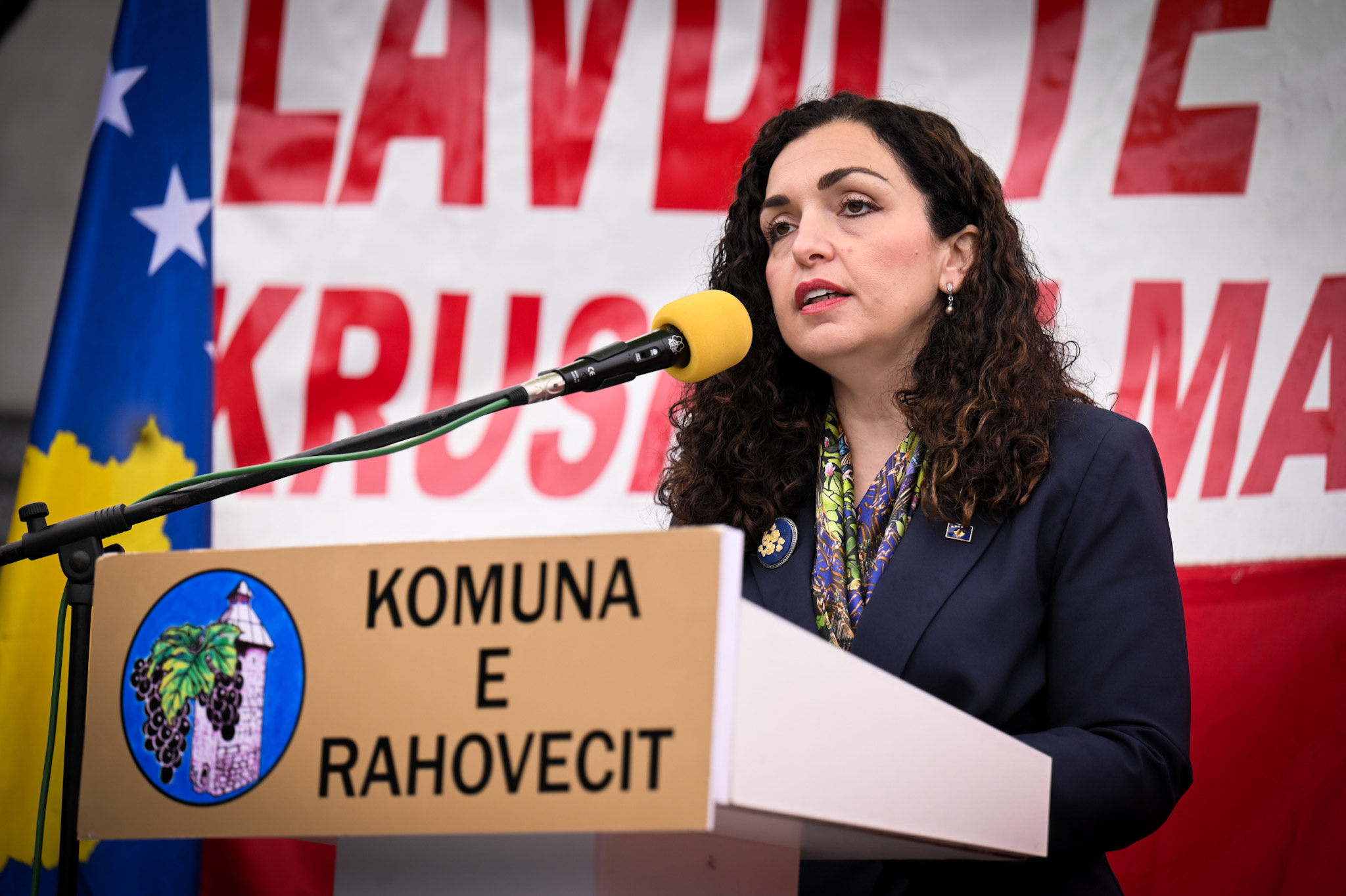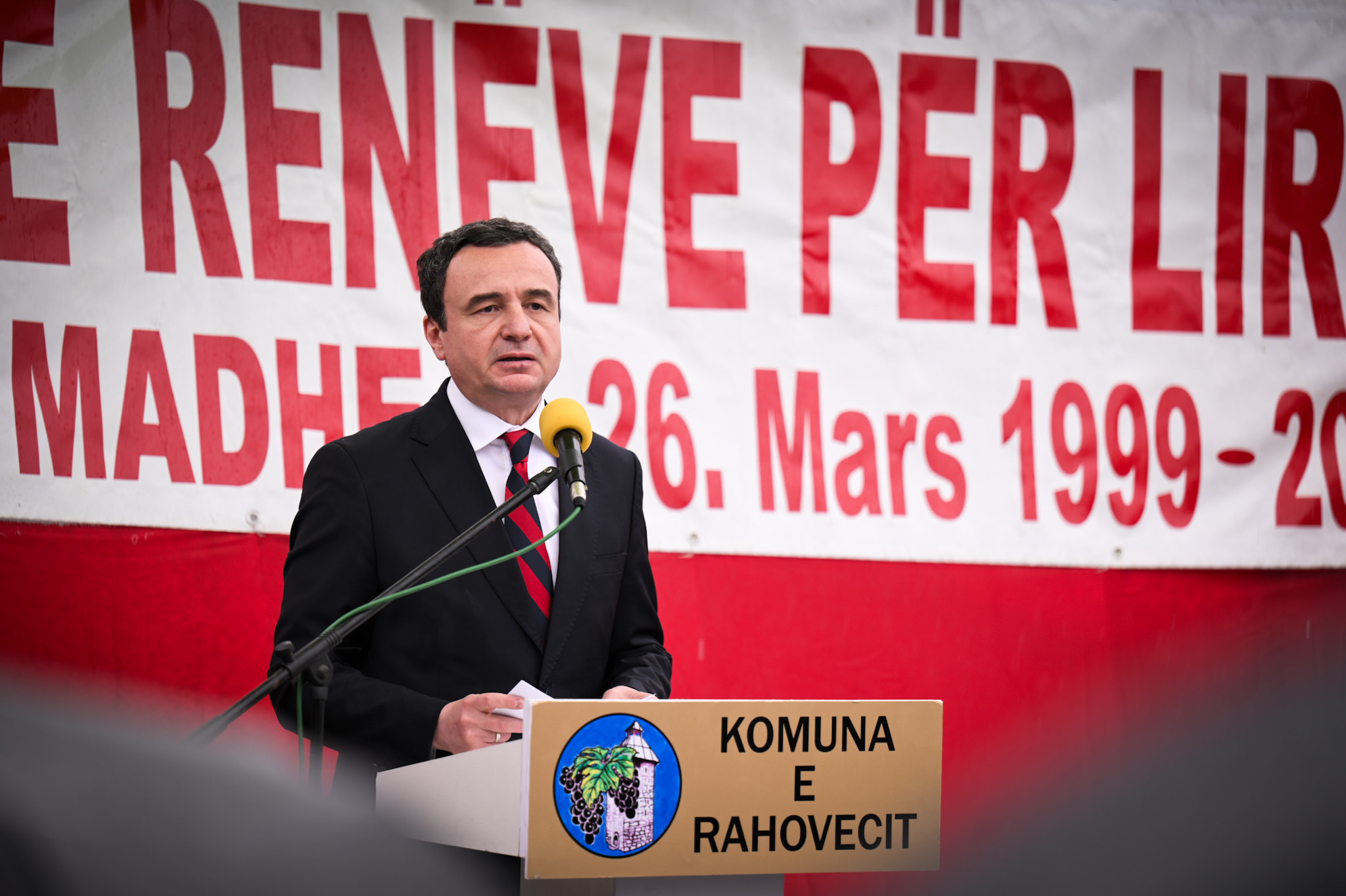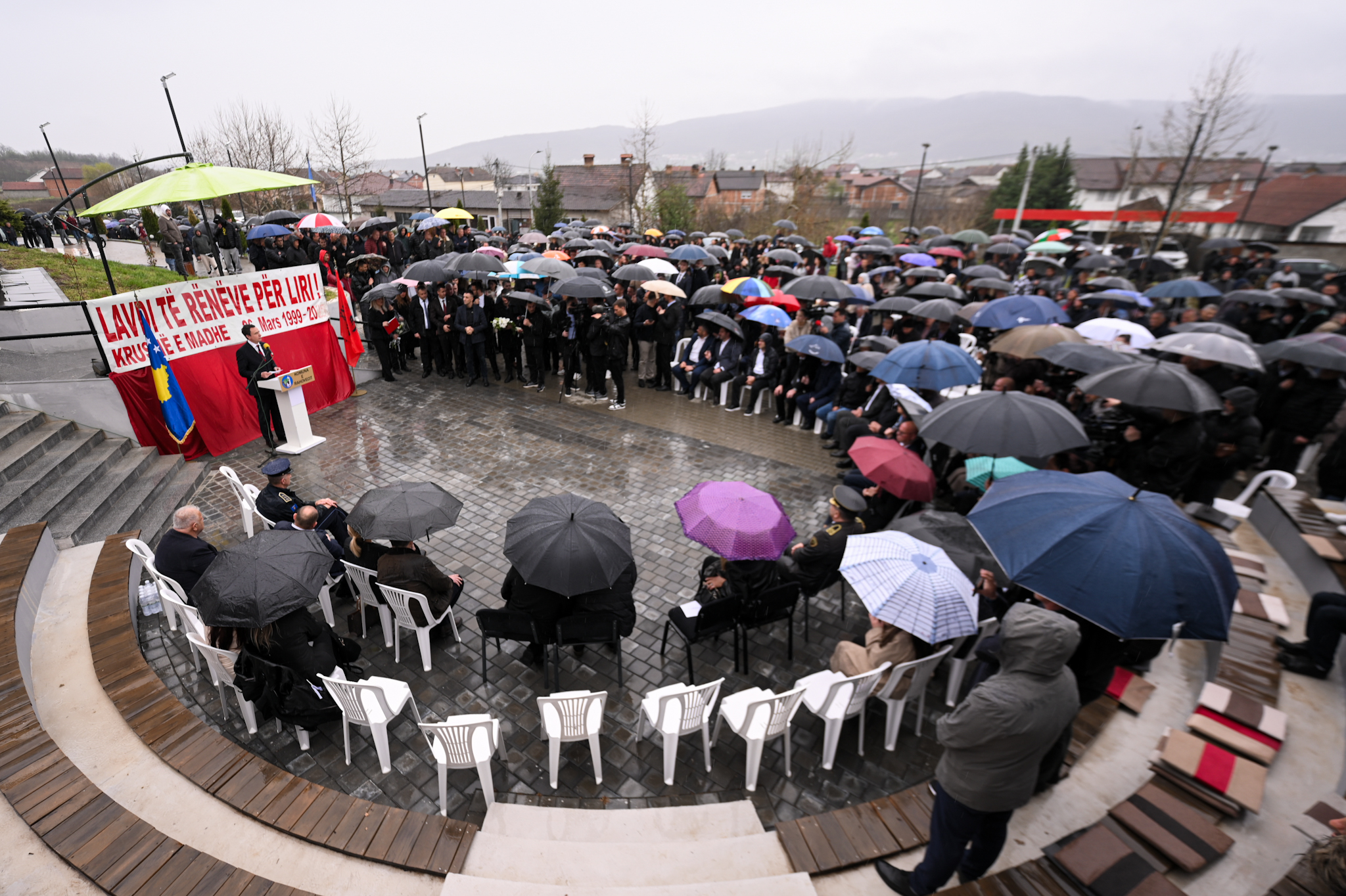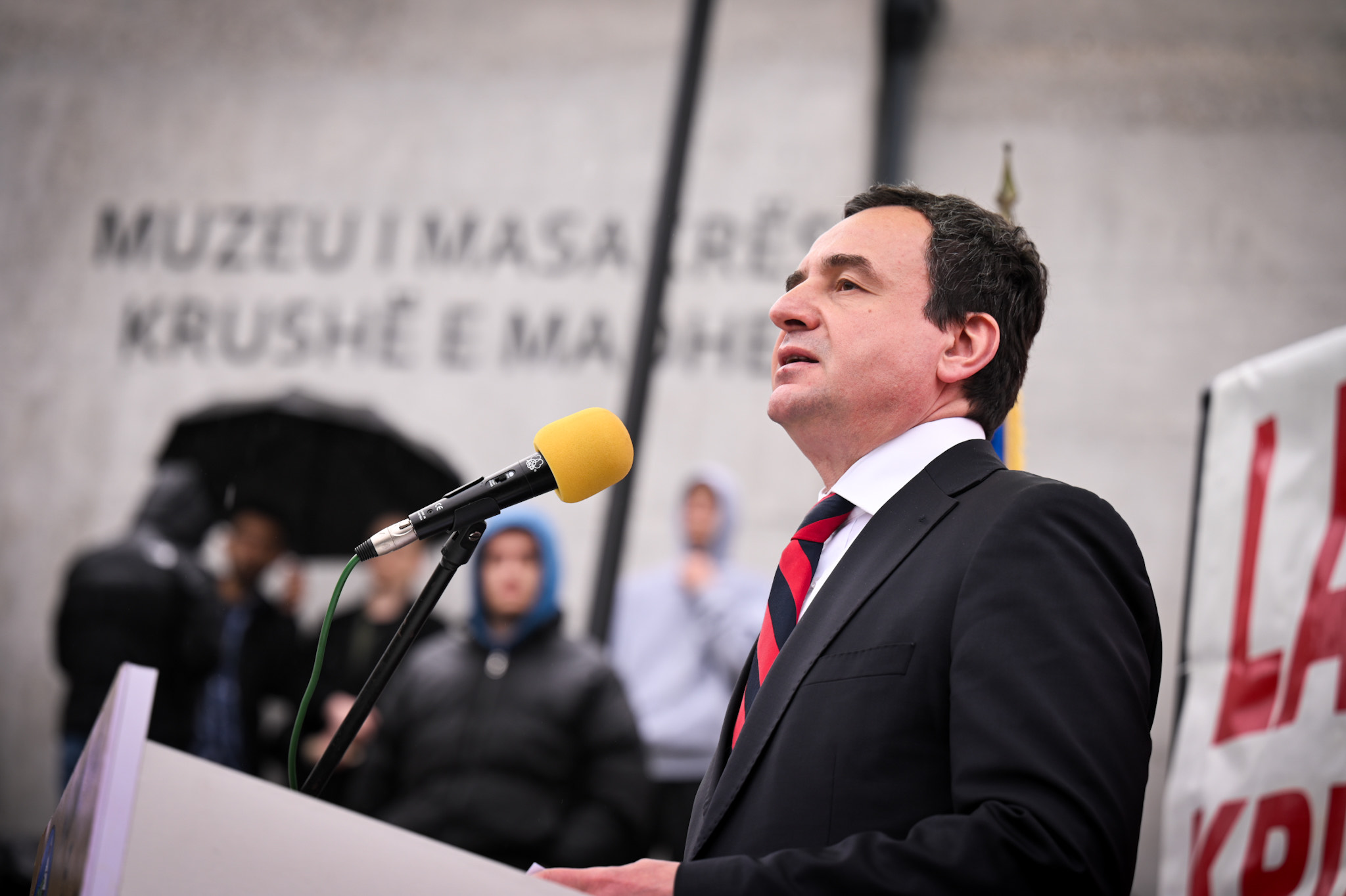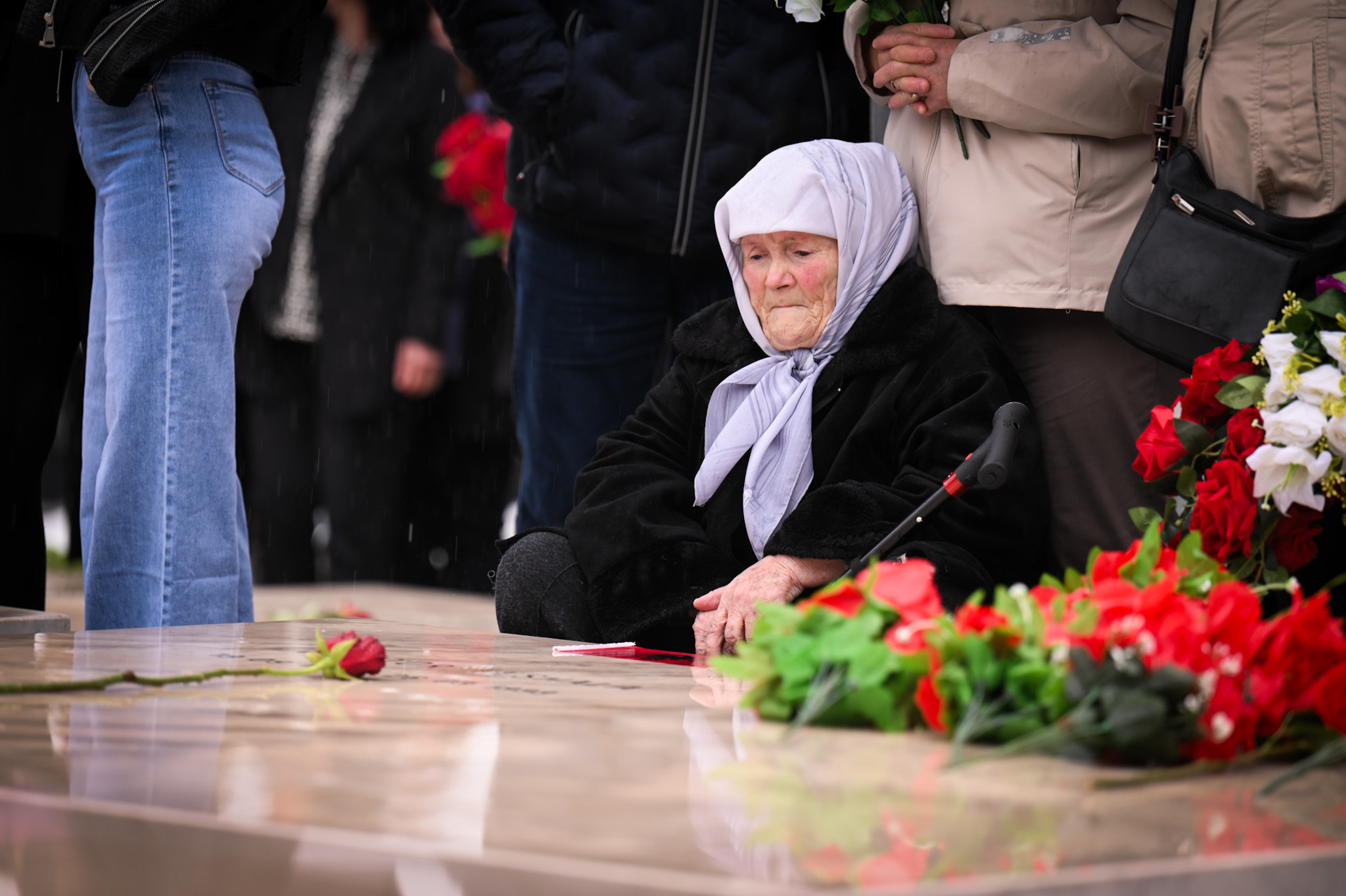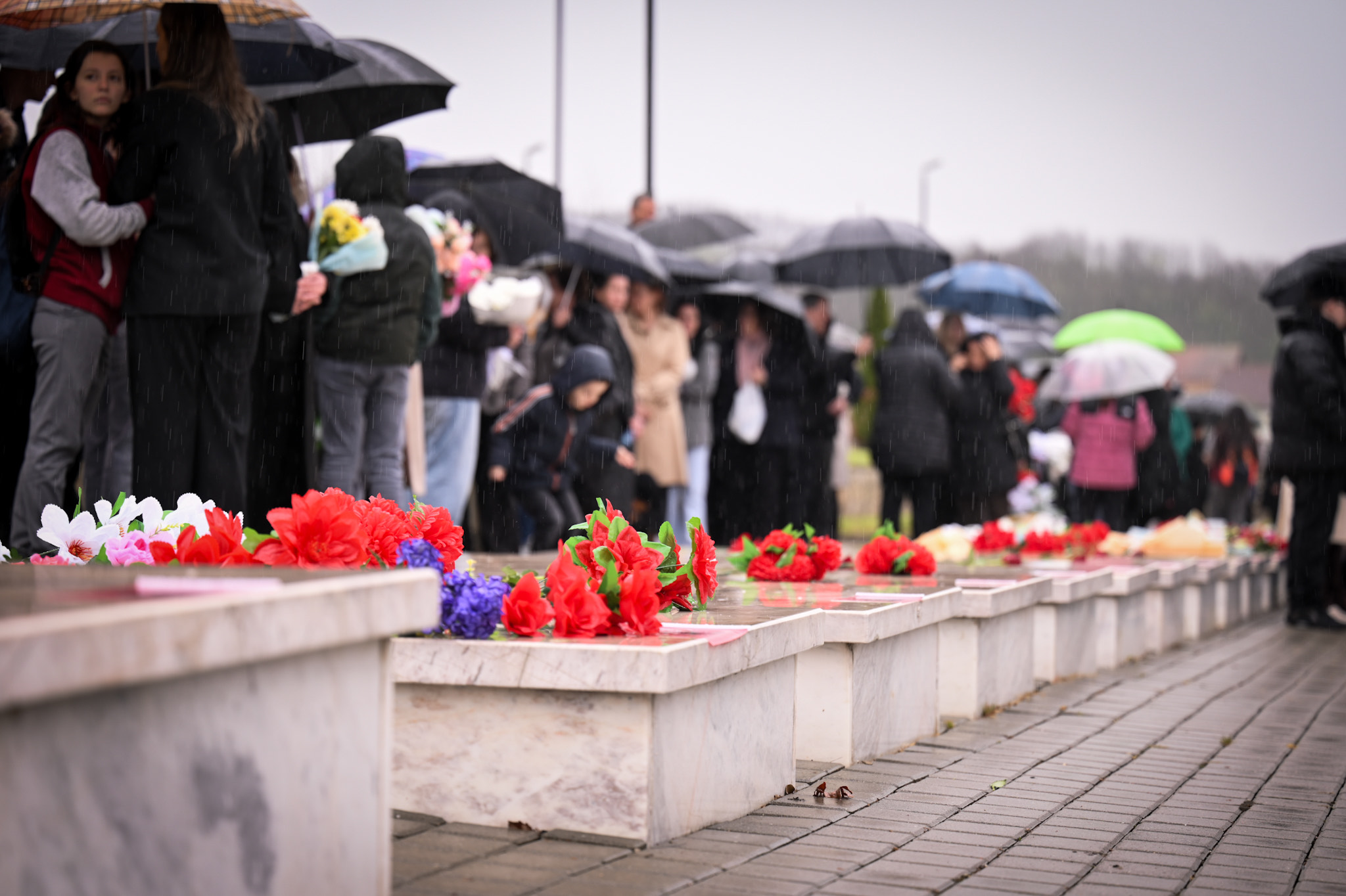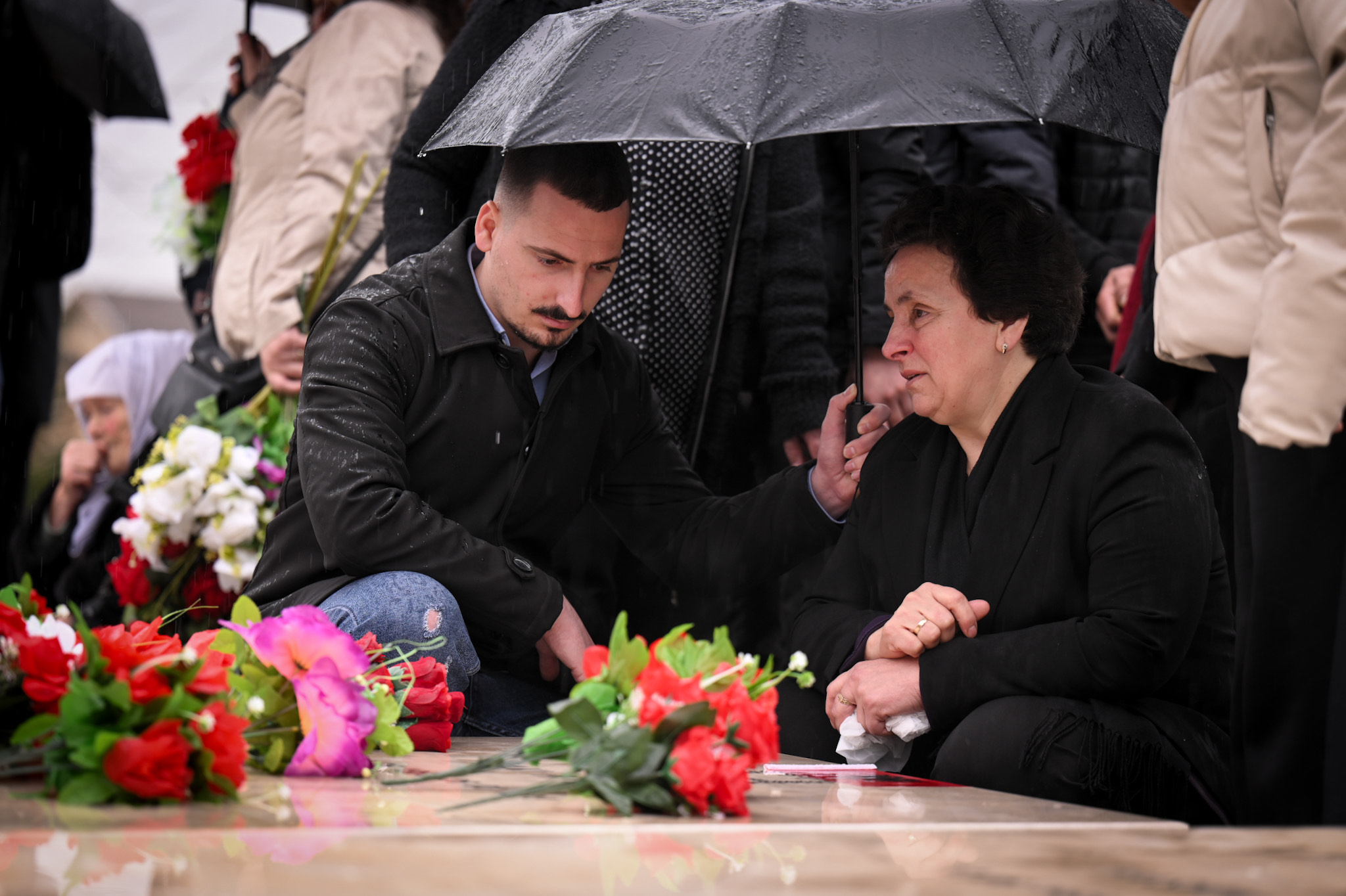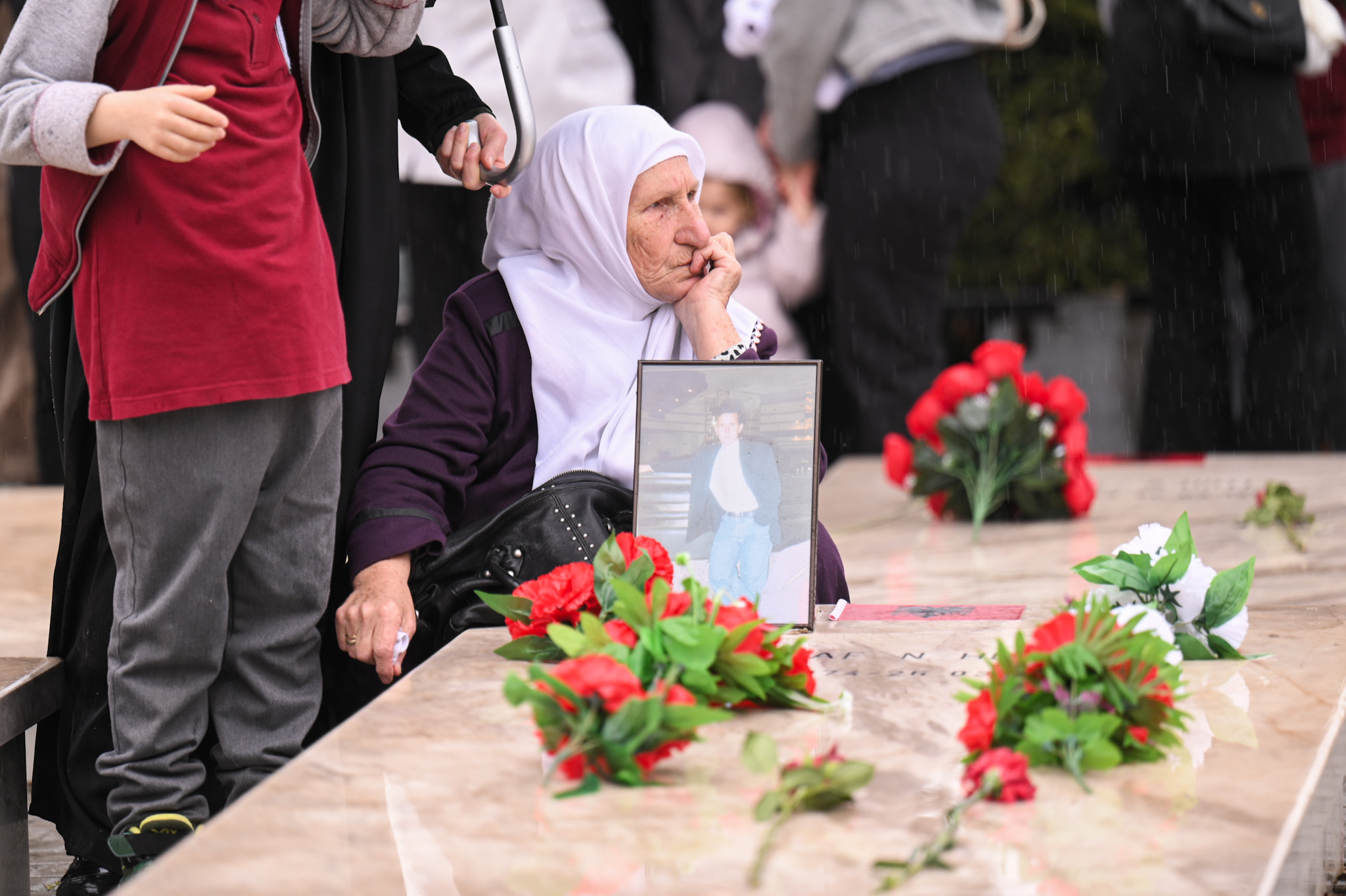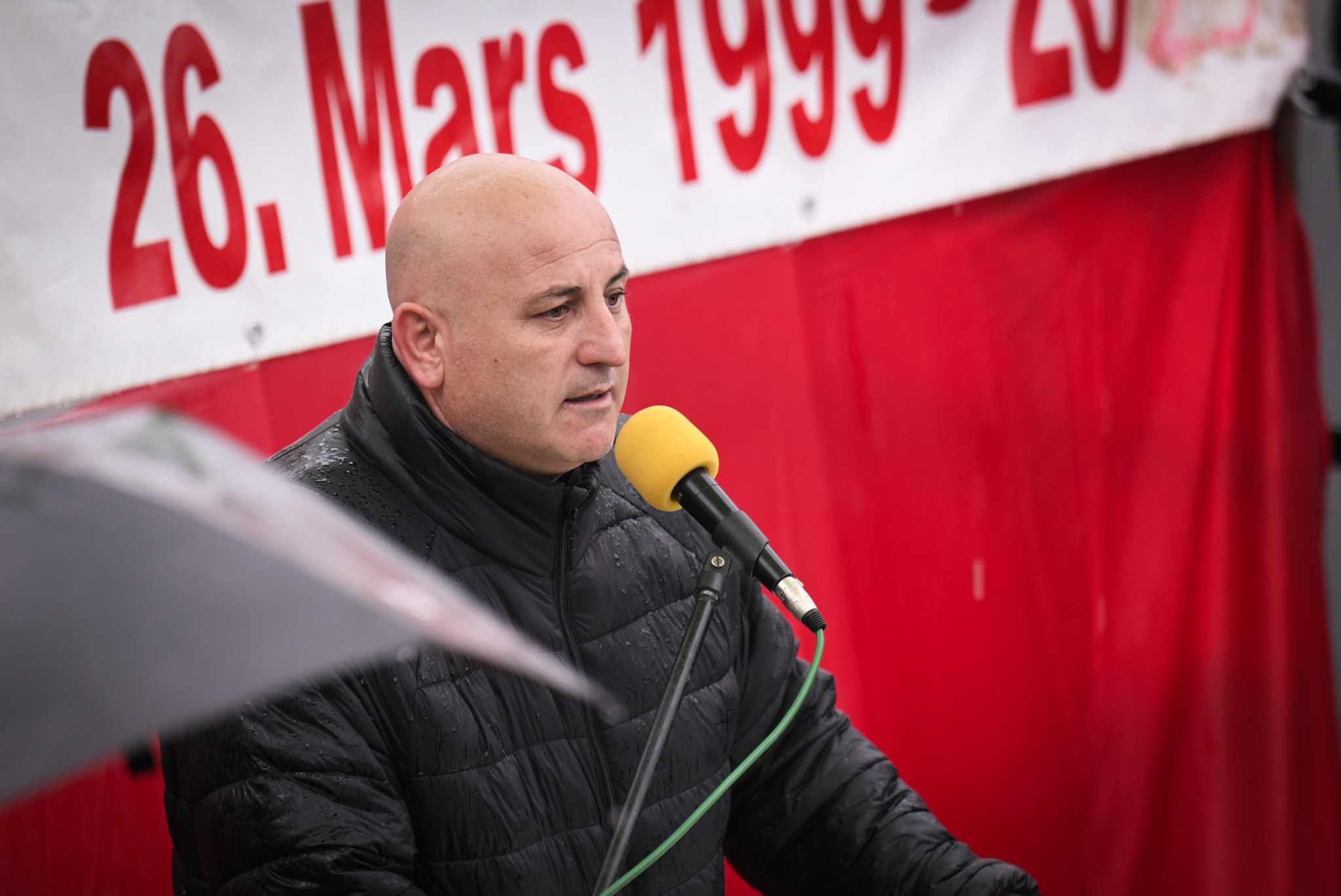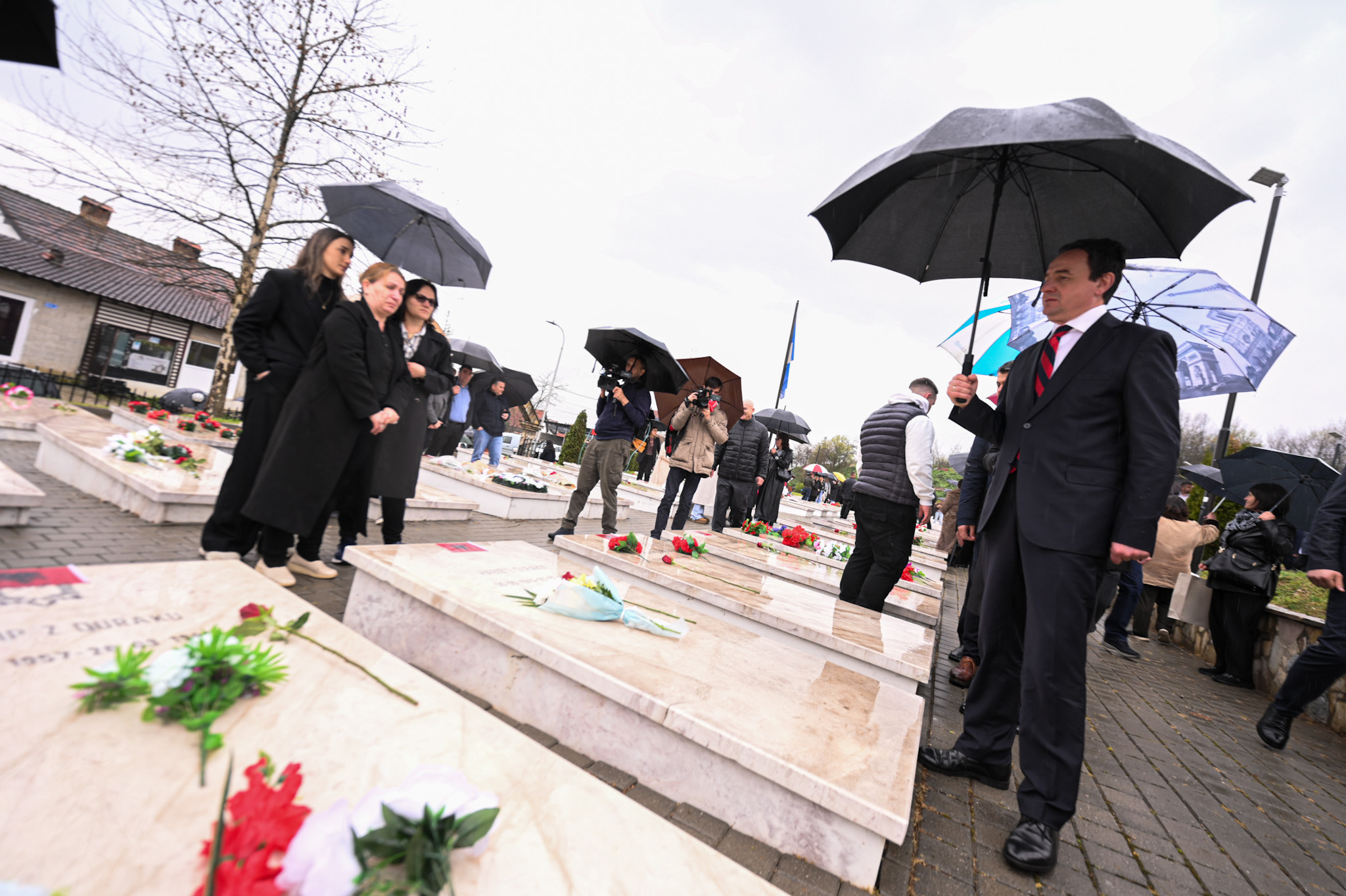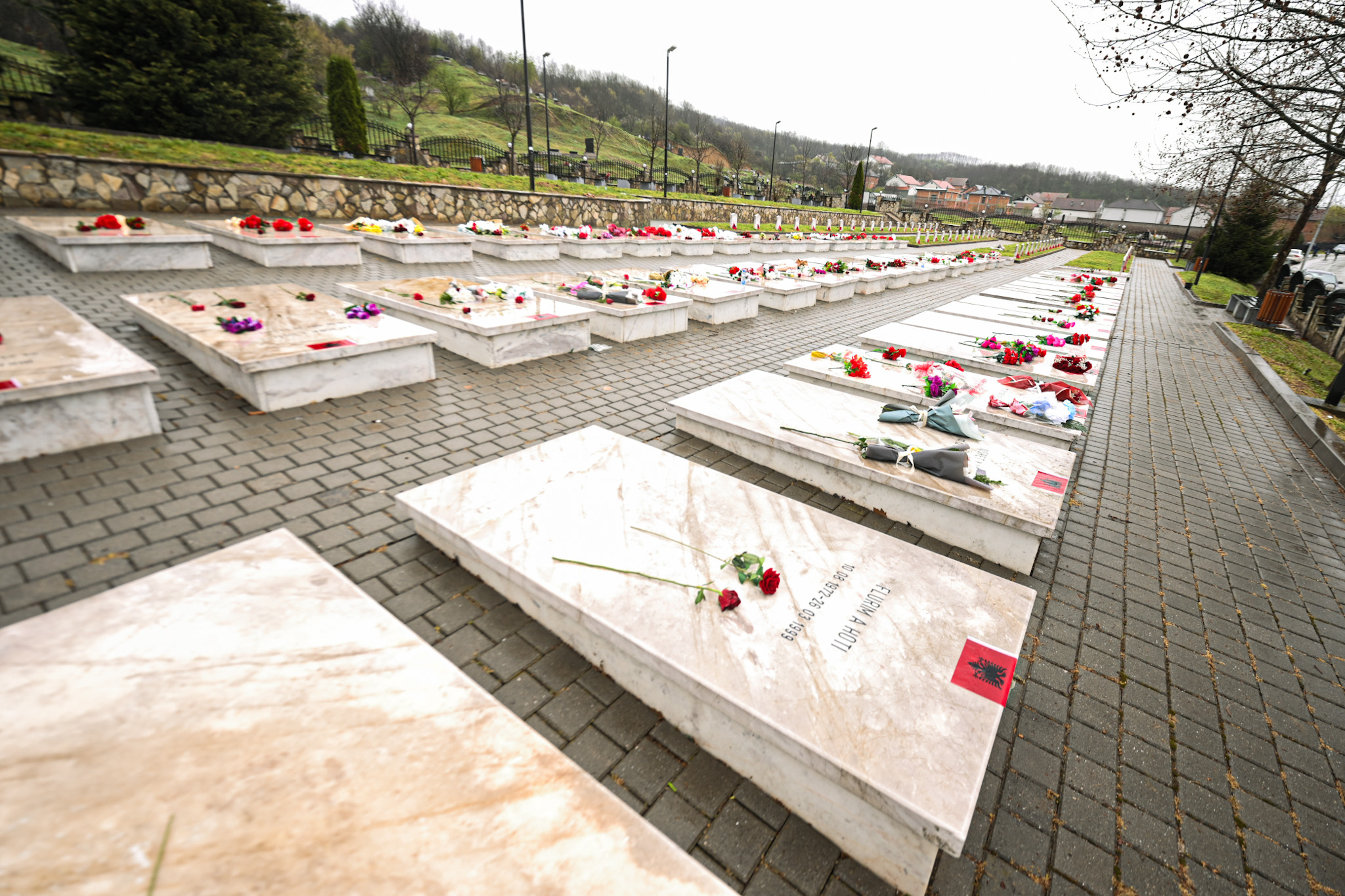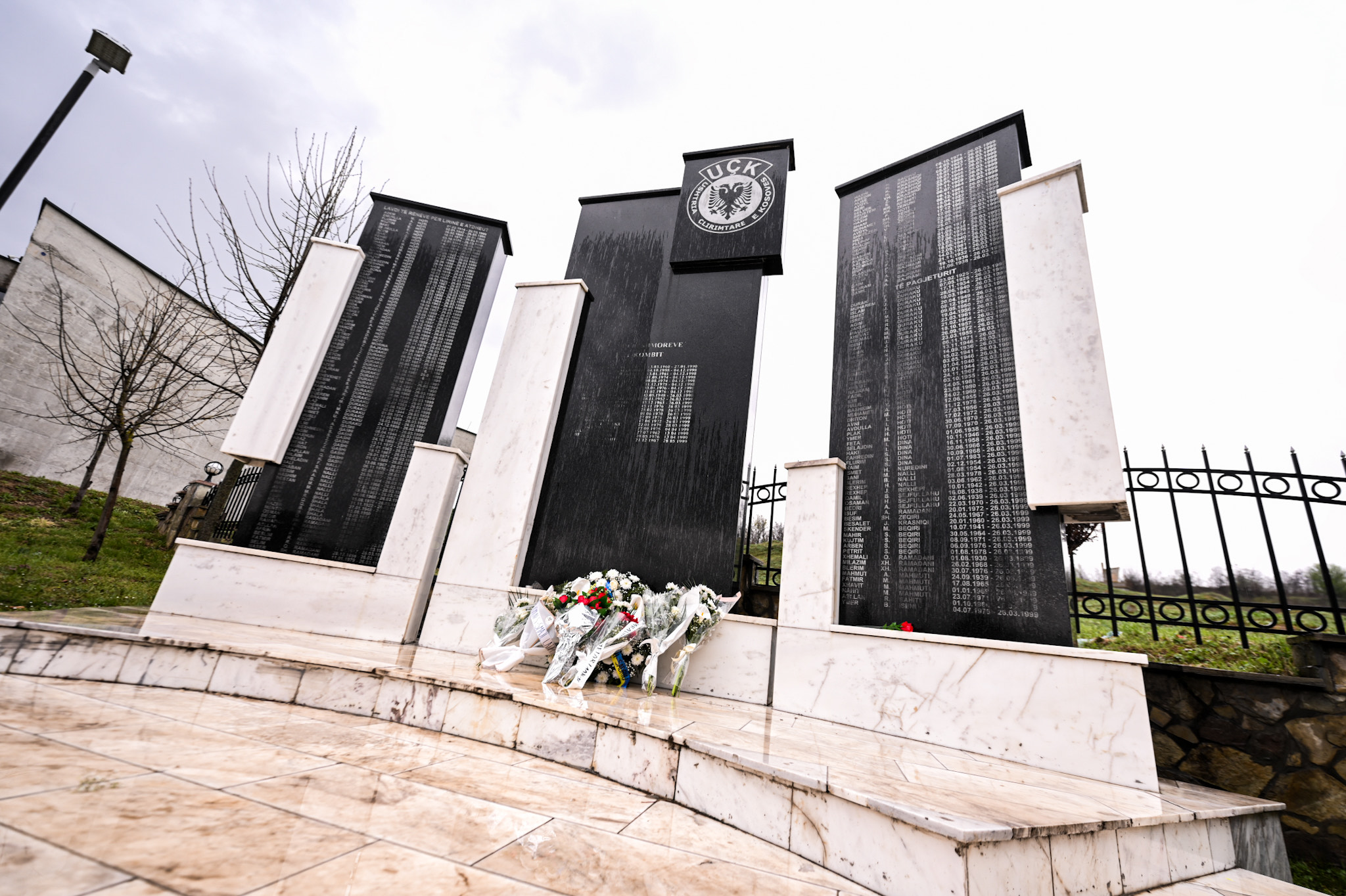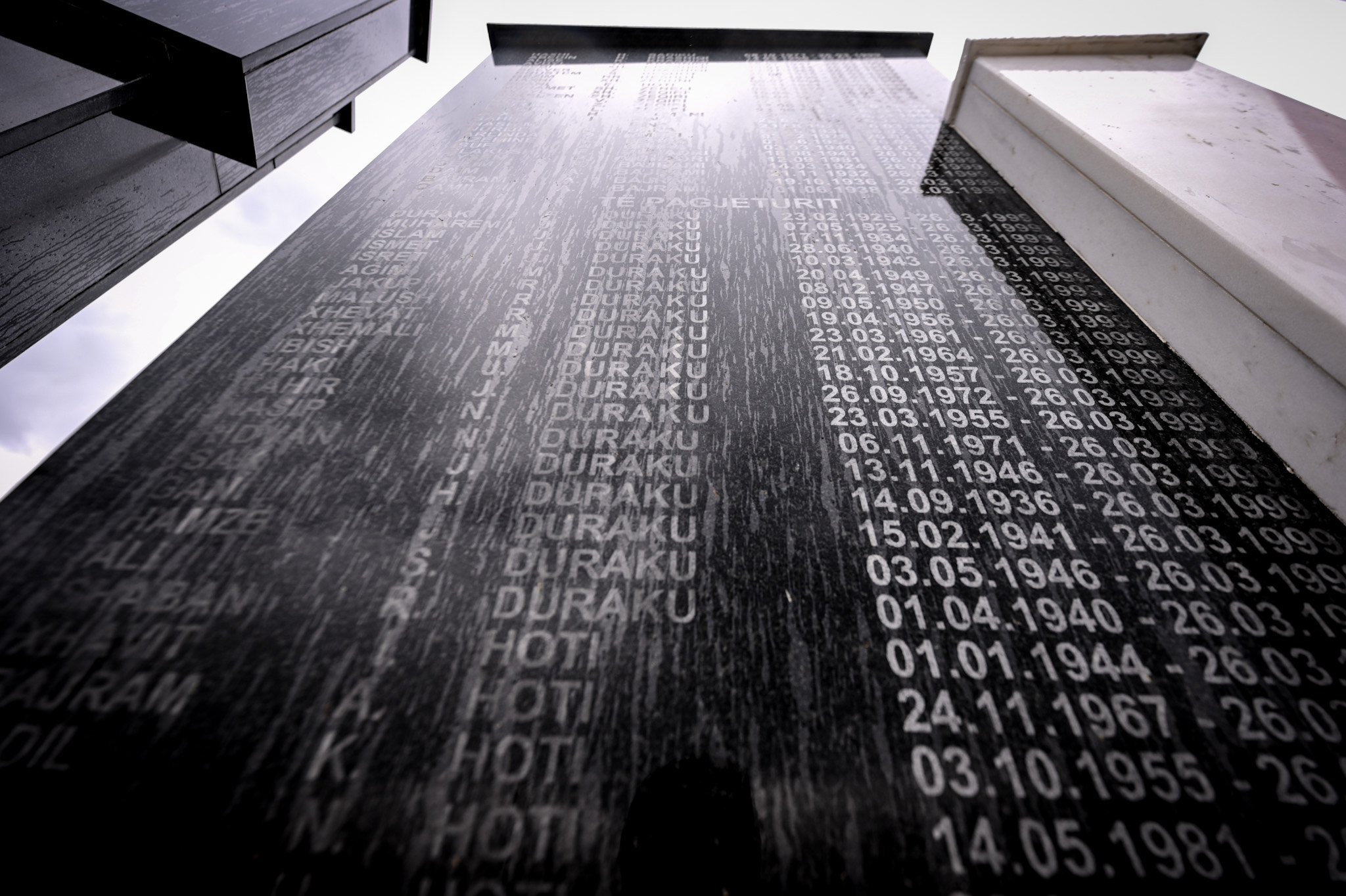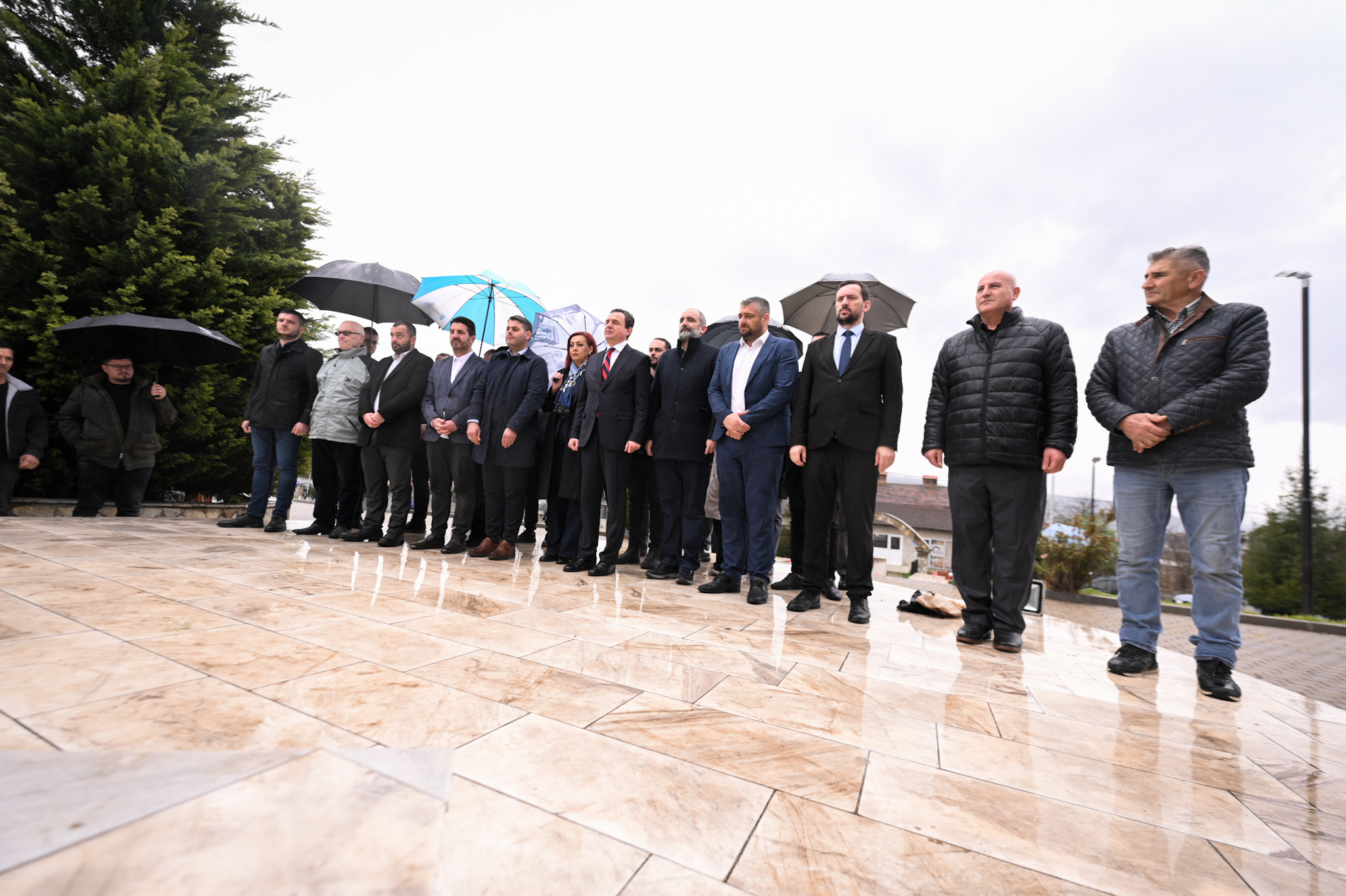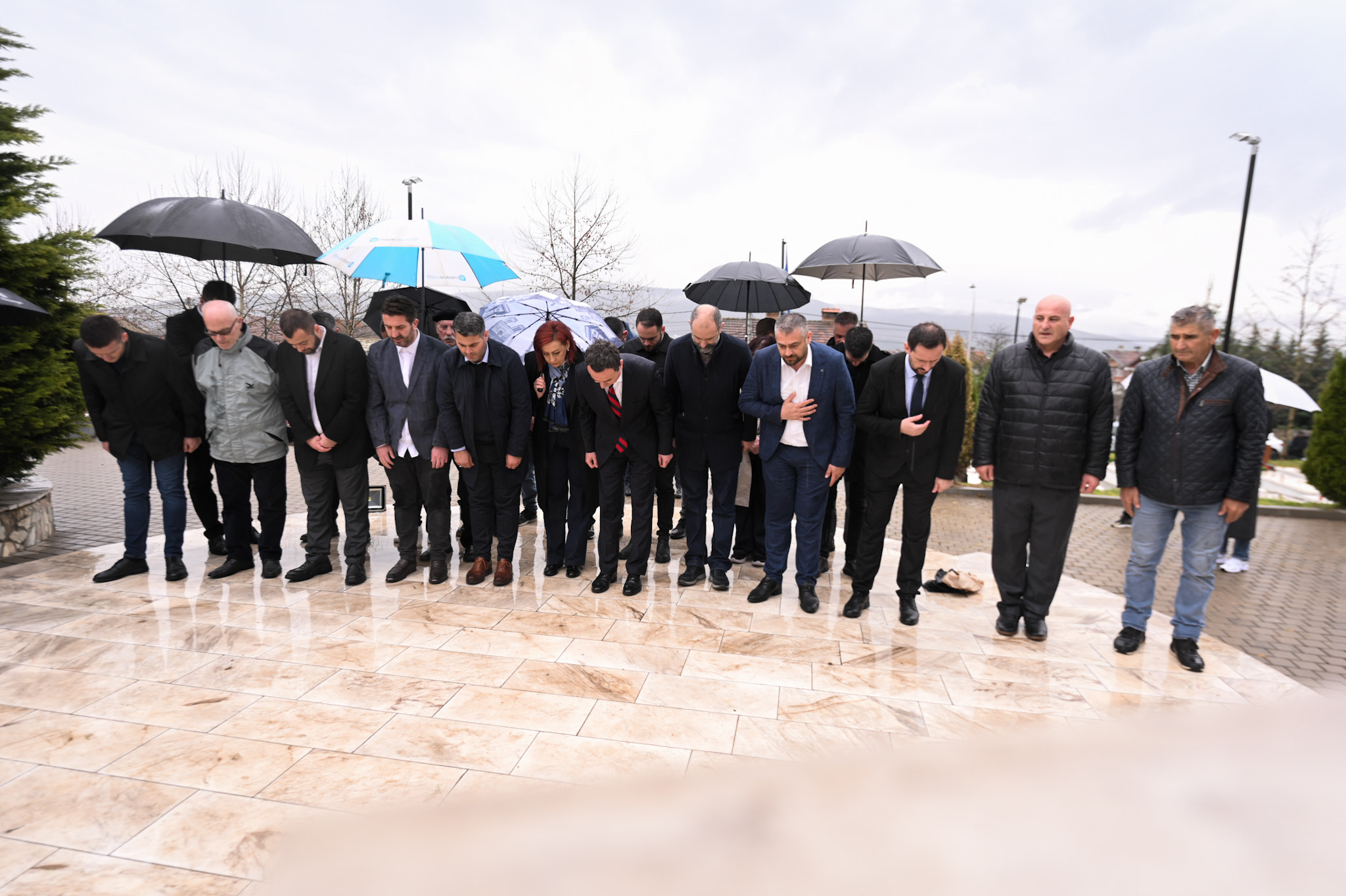Krusha e Madhe, Rahovec, 26 March 2025
In honor and remembrance of those killed in the Krusha e Madhe massacre, the Prime Minister of the Republic of Kosovo, Albin Kurti, paid tribute and laid wreaths of flowers at the gravesites of 22 fallen heroes and 155 martyrs, who were mercilessly killed by Serbian forces 26 years ago.
At this memorial gathering, marking the 26th anniversary of this brutal massacre, Prime Minister Kurti stated that this place, bearing the name and great pain, stands as evidence of the crimes committed by genocidal Serbia.
“Together with family members, survivors, and witnesses of the Krusha e Madhe massacre, today we commemorate one of the most brutal massacres carried out by the Serbian state apparatus. Between 25 and 27 March 1999, Serbian forces mercilessly killed 155 Albanian civilians here. Among them were seven children and five women. One of the women was pregnant. Serbian forces forcibly disappeared 64 residents of Krusha, among them the exceptional intellectual and tireless activist Ukshin Hoti. Over 700 houses were burned down, along with religious and cultural institutions,” said Prime Minister Kurti.
The Prime Minister also mentioned the two crematoriums of Krusha e Madhe. In the first crematorium, the traces of which are still visible, Serbian forces burned 19 innocent Albanian civilians. In the second crematorium, located in the home of the Nezir Duraku family, over 40 other civilians were cruelly burned.
Regarding these two crematoriums, which were personally seen by the British Foreign Minister Robin Cook during his visit in June 1999, he stated: “they were deliberately and mercilessly killed,” and that “as much as you feel sorrow for the victims, you feel deep anger toward those who committed these killings and toward those who gave the orders in Belgrade.”
The massacre in Krusha e Madhe was part of the indictment for war crimes against the butcher of the Balkans, Slobodan Milosevic. Despite this, justice has yet to act and the perpetrators have not been punished.
The Prime Minister emphasized that it is evident that Serbian police officers and soldiers harbored great hatred and had a clear plan to commit the crimes, where their main concern was the disappearance of the bodies – that is, the erasure of traces of the crime. Forced disappearances, abductions, burnings, the dumping of bodies into rivers, and other inhumane methods of mutilation and concealment of corpses are clear evidence of this genocidal project, he added.
Speaking about the legal amendments that have made possible the prosecution in absentia of Serbian war criminals and the newly approved structure of the Kosovo Police, in which a directorate for war crimes investigations has been established and the number of investigators increased from 19 to 41, the Prime Minister, from Krusha e Madhe, once again called upon the justice system in Kosovo to address war crimes with urgency and with moral, historical, and national responsibility, in addition to professional responsibility. He also invited citizens to contribute as much as possible to the collection of evidence and documentation of the crimes, especially now that the Institute for Crimes Committed During the War in Kosovo has been made operational.
In concluding his remarks at this memorial gathering, while remembering the victims, the Prime Minister emphasized that we bow with deep longing and sorrow, but also with great pride and admiration, and that the Republic of Kosovo is committed to peace and equality among nations in the Balkans.
“Glory to the 22 fallen heroes and 155 martyrs of Krusha e Madhe! Glory to all the heroes and martyrs of the entire Albanian nation throughout all stages of its rise and growth,” he concluded.
Full speech of Prime Minister Kurti:
Honorable President of the Republic of Kosovo, Ms. Vjosa Osmani Sadriu,
Honorable Deputy Prime Minister of the Government, Ms. Emilija Rexhepi,
Honorable Ministers and Deputy Ministers,
Members of the Assembly,
Representatives of state institutions,
Honorable Director of the Institute for Crimes Committed During the War in Kosovo, Atdhe Hetemi,
Honored invalids and veterans of the Kosovo Liberation Army, associations emerging from the war, associations of missing persons and those forcibly disappeared,
Dear mothers and other family members of the nation’s fallen heroes and martyrs,
Dear Andin Hoti, Chairperson of the Government Commission on Missing Persons,
Honorable Mayor of Rahovec Municipality, Mr. Smajl Latifi,
Honorable President of AAK, Ramush Haradinaj,
Honorable Head of the Village of Krusha e Madhe, Selami Hoti,
Honorable municipal directors and members of the Municipal Assembly,
Sisters, brothers,
Ladies and gentlemen,
Dear residents of Krusha e Madhe and the surrounding area,
In this place that carries the name and great pain, we are together to honor the extraordinary contribution and sacrifice for the Republic of Kosovo.
Together with family members, survivors, and witnesses of the Krusha e Madhe massacre, today we commemorate one of the most brutal massacres carried out by the Serbian state apparatus. Between 25 and 27 March 1999, Serbian forces mercilessly killed 155 Albanian civilians here. Among them were seven children and five women. One of the women was pregnant. Serbian forces forcibly disappeared 64 residents of Krusha, among them the exceptional intellectual and tireless activist Ukshin Hoti. Over 700 houses were burned down, along with religious and cultural institutions.
In Krusha e Madhe, there are also two crematoriums. In the first crematorium, the traces of which are still visible, Serbian forces burned 19 innocent Albanian civilians. And in the second crematorium, located in the home of the Nezir Duraku family, over 40 other civilians were cruelly burned.
The new institution built here, the Museum of the Massacre in Krusha e Madhe, stands as evidence both of the crimes committed by genocidal Serbia and of the triumph of the Republic of Kosovo.
These chambers of horror here in Krusha e Madhe were personally seen by the British Foreign Minister, Robin Cook, during his visit in June 1999. He stated that “they were deliberately and mercilessly killed,” and that “as much as you feel sorrow for the victims, you feel deep anger toward those who committed these killings and toward those who gave the orders in Belgrade.”
The massacre in Krusha e Madhe was part of the indictment for war crimes against the butcher of the Balkans, Slobodan Milosevic. Despite this, justice has yet to act and the perpetrators have not been punished.
It is evident that Serbian police officers and soldiers harbored great hatred and had a clear plan to commit the crimes, where their main concern was the disappearance of the bodies – that is, the erasure of traces of the crime. Forced disappearances, abductions, burnings, the dumping of bodies into rivers, and other inhumane methods of mutilation and concealment of corpses are clear evidence of this genocidal project.
To collect evidence and accurately document the crimes committed across Kosovo, we have operationalized the Institute for Crimes Committed During the War in Kosovo. Therefore, I call upon everyone to contribute with data and testimonies to this important process, for the preservation of history, the honoring of victims, and the future of new generations. This comes in addition to the population census conducted at the end of last year, which for the first time in the Republic of Kosovo, also included the identification and recording of losses and sufferings we endured during the war
To address the war crimes committed, we have developed the legal basis that was lacking for many years and have increased the capacities of institutions for their effective handling.
For investigation and truth, with the newly approved structure of the Kosovo Police, we have elevated war crimes investigations to the level of a directorate, with 41 officers and investigators, up from 19 previously. With the increase in the number of investigators, the number of war crimes witnesses being interviewed is clearly growing.
In the service of justice for these crimes, we have made possible the prosecution in absentia of Serbian war criminals. We have enacted the necessary legal changes so that they face justice. Therefore, from here, I once again call on the justice system in Kosovo to address war crimes with urgency and with moral, historical, and national responsibility, in addition to professional responsibility.
Dear sisters and brothers,
Here in Krusha, we bow with deep longing and sorrow, but also with great pride and admiration, for the men and women we had, and for the liberation we achieved. Their fall through sacrifice and selflessness is our guide on how to move forward without stopping and without straying.
Here, in the birthplace of Uncle Ukë, Professor Ukshin Hoti, we honor his legacy – for our lives and our political struggle – to live with dignity, united in a state that serves us all as a Republic, and that is not only a democratic Republic but also a Republic for development.
We will never forget the sacrifice of the mothers who, in the pain of loss and the anxiety of waiting, raised their children. You, who 26 years ago were the subjects of Serbia’s inhuman and genocidal war project, today, a quarter of a century later, are our heroines. We bow with boundless respect before your strength and resilience.
We are grateful for the contribution of women and the solidarity shown toward one another, which continues to inspire our entire people. We stand side by side, steadfast on our path toward justice.
Honorable ladies and gentlemen,
Sisters and brothers,
The Republic of Kosovo is committed to peace and equality among nations in the Balkans. We believe that the foundation of peace is justice for the victims and the punishment of criminals.
Glory to the 22 fallen heroes and 155 martyrs of Krusha e Madhe!
Glory to all the heroes and martyrs of the entire Albanian nation throughout all stages of its rise and growth.
Last modified: March 28, 2025

